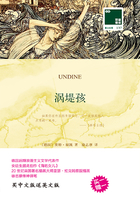132 What effect a general compte en banc would have in the metropolis of this kingdom with one in each province subordinate thereunto?
133 Whether it may not be proper for a great kingdom to unite both expedients, to wit, bank notes and a compte en banc?
134 Whether, nevertheless, it would be advisable to begin with both at once, or rather to proceed first with the bills, and afterwards, as business multiplied, and money or effects flowed in, to open the compte en banc?
135 Whether, for greater security, double books of compte en banc should not be kept in different places an d hands?
136 Whether it would not be right to build the compters and public treasuries, where books and bank notes are kept, without wood, all arched and floored with brick or stone, having chests also and cabinets of iron?
137 Whether divers registers of the bank notes should not be kept in different hands?
138 Whether there should not be great discretion in the uttering of bank notes, and whether the attempting to do things per saltum be not often the way to undo them?
139 Whether the main art be not by slow degrees and cautious measures to reconcile the bank to the public, to wind it insensibly into the affections of men, and interweave it with the constitution?
141 Whether a national bank may not prevent the drawing of specie out of the country (where it circulates in small payments), to be shut up in the chests of particular persons?
143 Whether tenants or debtors could have cause to complain of our monies being reduced to the English value if it were withal multiplied in the same, or in a greater proportion? and whether this would not be the consequence of a nation al bank?
144 If there be an open sure way to thrive, without hazard to ourselves or prejudice to our neighbours, what should hinder us from putting it in practice?
145 Whether in so numerous a Senate, as that of this kingdom, it may not be easie to find men of pure hands and clear heads fit to contrive and model a public bank?
146 Whether a view of the precipice be not sufficient, or whether we must tumble headlong before we are roused?
147 Whether in this drooping and dispirited country, men are quite awake?
156 Whether, if we do not reap the benefits that may be made of our country and government, want of will in the lower people, or want of wit in the upper, be most in fault?
165 Whether an assembly of freethinkers, petit maitres, and smart fellows, would not make an admirable Senate?
175 Whether there be really among us any parents so silly, as to encourage drinking in their children?
176 Whence it is, that our ladies are more alive, and bear age so much better than our gentlemen?
185 Whether this be altogether their own fault?
197 Whether it may not be right to appoint censors in every parish to observe and make returns of the idle hands?
198 Whether a register or history of the idleness and industry of a people would be an useless thing?
199 Whether we are apprized, of all the uses that may be made of political arithmetic?
207 Why the workhouse in Dublin, with so good an endowment, should yet be of so little use? and whether this may not be owing to that very endowment?
208 Whether that income might not, by this time, have gone through the whole kingdom, and erected a dozen workhouses in every county?
210 Whether the tax on chairs or hackney coaches be not paid, rather by the country gentlemen, than the citizens of Dublin?
227 Whether there should not be a difference between the treatment of criminals and that of other slaves?
251 Whether when a motion was made once upon a time to establish a private bank in this kingdom by public authority, divers gentlemen did not shew themselves forward to embark in that design?
252 Whether it may not now be hoped that our patriots will be as forward to examine and consider the proposal of a public bank calculated only for the public good?
253 Whether any people upon earth shew a more early zeal for the service of their country, greater eagerness to bear a part in the legislature, or a more general parturiency with respect to politics and public counsels?
254 Whether, nevertheless, a light and ludicrous vein be not the reigning humour; but whether there was ever greater cause to be serious?
Part III
13 Whether the whole city of Amsterdam would not have been troubled to have brought together twenty thousand pounds in one room?
14 Whether it be not absolutely necessary that there must be a bank and must be a trust? And, if so, whether it be not the most safe and prudent course to have a national bank and trust the legislature?
15 Whether objections against trust in general avail, when it is allowed there must be a trust, and the only question is where to place this trust, whether in the legislature or in private hands?
16 Whether it can be expected that private persons should have more regard to the public than the public itself?
17 Whether, if there be hazards from mismanagement, those may not be provided against in the framing of a pubic bank; but whether any provision can be made against the mismanagement of private banks that are under no check, control, or inspection?
18 Whatever may be said for the sake of objecting, yet, whether it be not false in fact, that men would prefer a private security to a public security?
19 Whether a national bank ought to be considered as a new experiment; and whether it be not a motive to try this scheme that it hath been already tried with success in other countries?
20 If power followeth money, whether this can be anywhere more properly and securely placed, than in the same hands wherein the supreme power is already placed?
21 Whether there be more danger of abuse in a private than in a public management?
22 Whether the proper usual remedy for abuses of private banks be not to bring them before Parliament, and subject them to the inspection of a committee; and whether it be not more prudent to prevent than to redress an evil?














